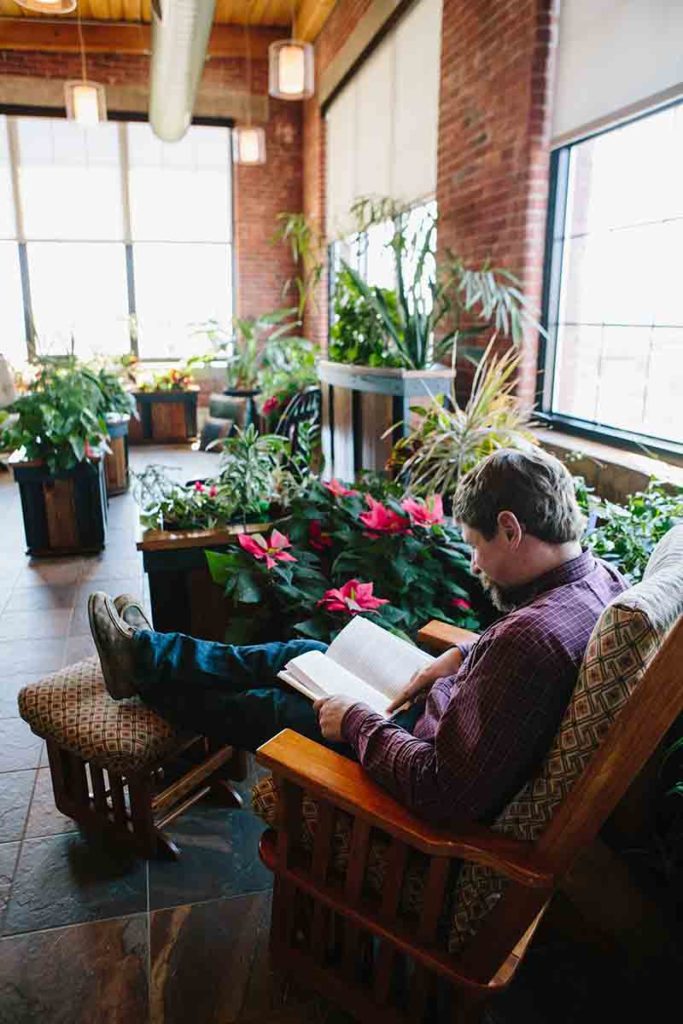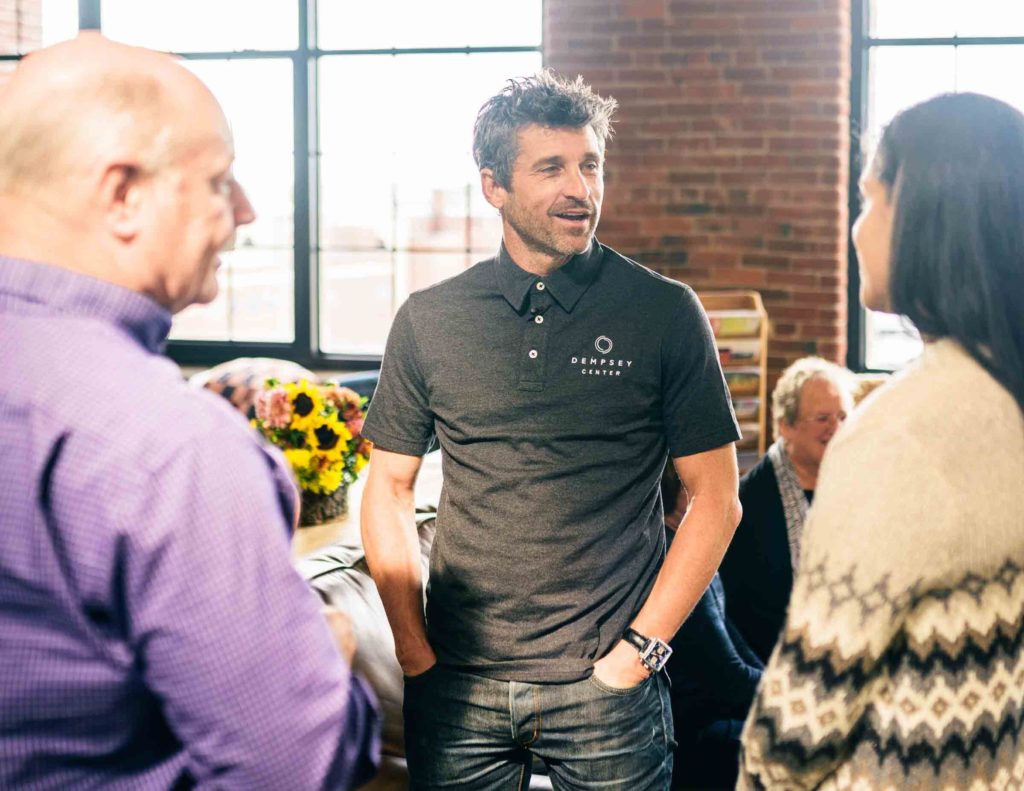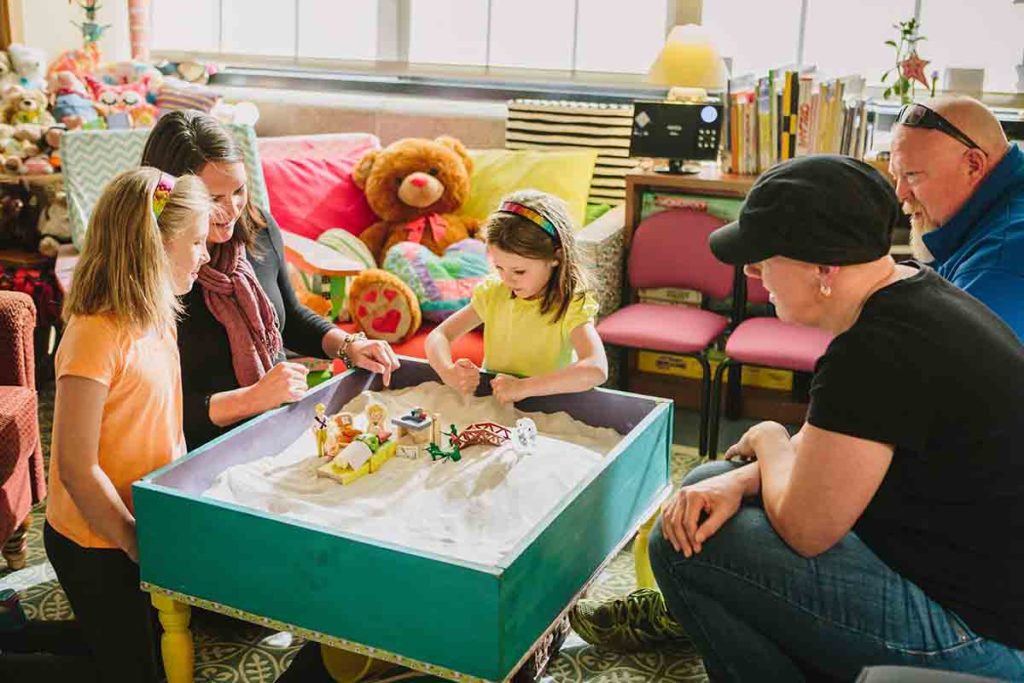All-Around Care
As it grows throughout Maine, the Dempsey Center maintains the original vision of its founder to improve the lives of people affected by cancer

All-Around Care
As it grows throughout Maine, the Dempsey Center maintains the original vision of its founder to improve the lives of people affected by cancer
by Alexandra Polkinghorn
Photography courtesy of the Dempsey Center
Issue: October 2020
Patrick Dempsey is unequivocal in describing the mission of the organization he founded: “Our goal is to reach everyone who has been diagnosed with cancer in Maine.” The Dempsey Center was conceived well over a decade ago, when Dempsey’s own mother, Amanda, was battling ovarian cancer and seeking support services. This June, we sat down via Zoom with Dempsey, as well as Wendy Tardif, executive director of the Center, and John Coldren, a Dempsey Center client, to discuss how the Center is evolving—not only amid the upheaval of a global public health crisis, but well into the future.
In 2007 Dempsey became a spokesperson for Amgen’s Breakaway from Cancer initiative. “I saw the wellness and complementary medicine components and thought, ‘This is something that needs to be happening in our community back home in Maine. Is my mother getting these treatments?’” His first call was to Amanda Dempsey. “I said, ‘Mom, are you doing this? Are you getting any of these treatments? Could you use this support?’ And then we started looking into it. It was there, but hard to find because it wasn’t under one roof.” Working with Amgen, which has continued to be a partner, he started to build that roof. The Dempsey Center now has locations in both Lewiston, Dempsey’s birthplace, and South Portland.
The Dempsey Center’s core tenet is to make life better for people managing the impacts of cancer. Naturally, that includes patients in treatment, but also their family members, loved ones, and survivors experiencing loss, and those in remission from cancer. Tardif describes the Dempsey Center and its employees as a spoke in the wheel of a patient’s complete regimen. “They get their treatment from their oncology professionals—physicians and providers, surgeons, and so forth—and then we provide adjunct care for people around their wellness services.” Services include acupuncture and massage therapy, which help with the side effects of cancer treatment; one-on-one and group counseling; and a variety of support groups, including exercise and nutrition classes. The Dempsey Center has never charged clients or their insurance companies for any service. “There are no barriers here,” says Tardif. “When people walk through the door, all they have to think about is, ‘What are the things that I need the most to help me make my life better today?’”

Patrick Dempsey meets with a family at the Dempsey Center in Lewiston.
In January of 2018 John Coldren received a phone call from his physician that he had been dreading. He recalls the moment distinctly. “The phone call was, ‘You have cancer.’ It was like driving a stake into my heart. I felt very fearful and uncertain, and very, very isolated.” His urologist connected him with a nurse navigator, whose first question was whether he knew about the Dempsey Center. “When I said no, she told me, ‘You need to go. Don’t call to get an appointment, just go in.’ I happened to go into the South Portland location, and walked in the door and met [client services specialist] John McKenna. I felt such an expression of kindness and acceptance; I felt immediately that I was going to get some help.”
This March the advent of the coronavirus pandemic forced a change of approach for the Dempsey Center overnight, as it did for nearly every nonprofit organization. “We started providing some [online] services right away,” says Tardif, “including our one-on-one counseling, because we were already doing a little bit of it even before the onset of COVID-19. Since that time we’ve added something new almost every week. We’re doing acupressure, self-massage, and massage for couples. We’re starting up our What Now? program, which is our survivorship class for people who are done with their treatment. We’ve been doing lots of Facebook Lives.” Prior to our call, Coldren had taken a Zoom tai chi class. He has found the virtual transition less jarring than anticipated. “I’m part of a cancer support group right now, and I have not met any of the people in person, but I feel like I know each and every one of them. It’s been remarkable how we’ve connected electronically.”
Connectivity was something the Center had already been working on in pursuit of its mission to serve as many people as possible in one of the most rural states in America. “It has always been our concern,” says Dempsey. “How do we reach rural Maine? It’s important that we get clients into these brick-and-mortar facilities, but at the same time, if they’re snowed in in the winter months and they can’t get in, we have a lot of cancellations. This has been something that we’ve been thinking about. We’ve been putting the strategy in place for this year, but lockdown just accelerated the process.” While they will be opening up their physical offices as soon as possible, the team sees this new virtual program as a kind of third location.

Dempsey was motivated to create the Dempsey Center after witnessing his mother Amanda’s own cancer treatment journey.

The Dempsey Center is a member of the Association of Maine Cancer Support Centers, working with organizations such as the Beth C. Wright Cancer Resource Center in Ellsworth, the Cancer Resource Center of Western Maine in Norway, and Sarah’s House of Maine in Holden, with the goal of helping each other do more for the people of Maine. Together, they’re applying for a distance learning grant that would help them broadcast some of the programs and services offered at the Dempsey Center’s Lewiston location, allowing them to expand the work they’re doing into other communities.
“In the bleakness of what’s happening right now, we are maintaining a really positive energy because the work hasn’t stopped. And the vision for the future hasn’t stopped,” says Dempsey. “The ability to reach people who are so isolated through the technology has been proven through this experience. It’s made our community tighter and closer.” In addition to this digital strategy, Dempsey emphasizes that a major priority is to expand into northern Maine by opening a facility and developing relationships there. “Around 9,000 people in Maine are diagnosed with cancer each year, and then, of course, there are the survivors on top of that. We want to be able to reach every one of them and to provide services for them in a seamless way. Once your doctor calls you, we want to be right there with you immediately, so you’re not alone.”
With a stark understanding of what it feels like to receive that call, Coldren believes that the Center’s unique approach is key to its success, both in person and online. “I may have had a totally different reaction if I had a different reception—if I had been given paperwork to fill out and asked for money, or if I had been told anything other than, ‘I’m glad you’re here, and let me show you around.’” And he underscores the benefit of the new type of support network: “It’s not the same as being physically with someone, but in some ways is better. If I had transportation problems, if the weather was causing an issue—all you need is access to the internet and you can be there. That is the beautiful thing.”

The Dempsey Center’s mission is to care for all those affected by the cancer diagnosis, including the patients’ families and those who are grieving.

